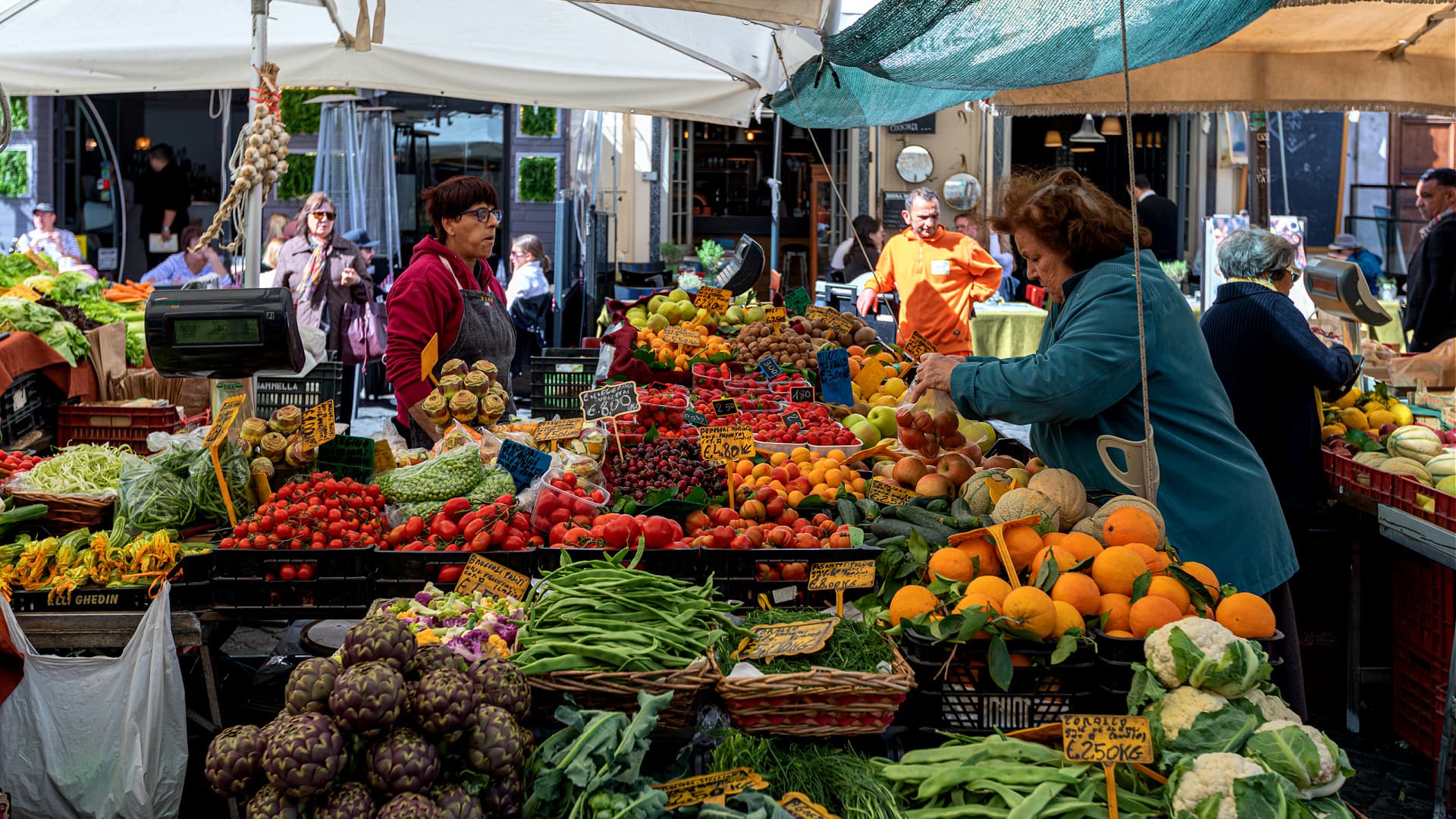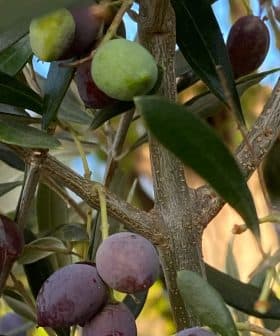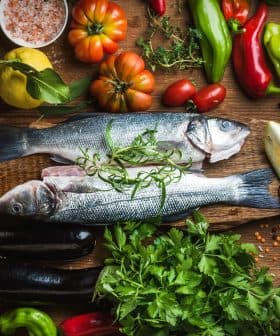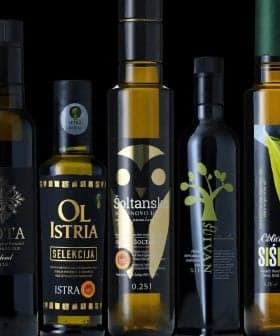Health Researcher: Focus on Healthier Diets Instead of ‘Demonizing’ Certain Foods

Duane Mellor, a British health researcher, advocates for a positive approach to promoting healthy eating habits by emphasizing what consumers should eat rather than what they should avoid, suggesting a focus on the Mediterranean diet and other healthy eating patterns. Mellor also highlights the importance of a holistic view of diet and food, urging collaboration between health officials, politicians, and the private sector to create environments that support and guide individuals in making healthy choices.
Health professionals and government officials should emphasize what consumers should eat instead of warning against eating specific foods, a British health researcher has urged.
Duane Mellor, the associate dean of public engagement at Aston Medical School’s college of health and life sciences, said health officials should make it easier for people to follow a healthier diet instead of warning them not to eat ultra-processed foods.
The accumulative effects of building a varied and healthy dietary pattern are powerful. The power is not in an individual food; it’s across a whole dietary pattern.
He argued that the combination of urbanization and modernization, the oversimplification of the scientific study results and perverse incentives in politics and agribusiness had created a food environment at cross-purposes.
“As people get wealthy and move to cities, there tends to be more meat, more pastries, more processed high fat, high salt and high sugar food,” he told Olive Oil Times.
See Also:Health NewsThe backlash to this trend came in the form of fad diets that demonized foods rich in carbohydrates and fats, which have not succeeded in curbing rates of obesity and cardiovascular disease.
“Humans don’t like restrictions,” Mellor said. “We are creatures that tend to like making our own decisions and exploring our own ideas, so we need an environment that supports and celebrates healthy choices.”
Instead, he urges a more holistic vision of diet and food with an emphasis on helping people make healthy choices instead of chastising them about what not to eat.
For example, Mellor said people should follow the Mediterranean diet and other eating patterns followed by populations living in “blue zones.”
Blue Zones
The Blue Zones are regions of the world where people live significantly longer and healthier lives compared to the rest of the world. These regions include Ikaria (Greece), Okinawa (Japan), Ogliastra Region (Sardinia), Nicoya Peninsula (Costa Rica) and Loma Linda (California, United States). Dan Buettner, a demographer, studied the lifestyles and habits of people in these regions and identified commonalities such as diet, physical activity, social connectedness, and sense of purpose that contribute to their longevity and well-being.
The Mediterranean diet is characterized by a high intake of plant-based foods, such as fruits, vegetables, whole grains, nuts and legumes, with extra virgin olive oil as the primary source of fat.
The diet, which is often referred to more as a lifestyle, also encourages moderate consumption of fish and poultry and limited consumption of dairy products, red meat and sweets.
However, Mellor believes it is the social aspects of the diet, such as encouraging exercise and eating meals with friends and family, that make it effective.
“The big thing that’s forgotten is the conviviality of the approach, so it’s not just based on the chemicals on the plate; it’s the art of the food and the sharing of food with others,” Mellor said.
His plea to change the conversation about healthy eating comes on the heels of a new study published in The Lancet.
The research found that replacing 10 percent of processed foods with an equal amount of minimally processed foods was associated with reduced risk for several types of cancer.
Mellor believes politicians, health officials and the private sector can work together to help people achieve this replacement through a positivist approach.
“There are a lot of things that could be done through agricultural policy, through health policy,” he said.
For example, governments could stop subsidizing low-quality crops destined for animal feed, such as corn, and encourage farmers to grow more whole grains and legumes instead.
Supermarkets could easily modify their layouts to group foods for healthy and easy-to-prepare five-item recipes together while separating common processed food combinations, such as hot dogs and buns or frozen processed meat and fries.
“You could change your environment, so making healthy choices is easier, and you are guided in making these choices,” Mellor said.
He added that some ultra-processed foods might even be used as a gateway to healthier meals, such as adding fresh vegetables, lentils or whole grain pasta to a jar of tomato sauce.
“Some people would hate me for saying this, but you could make ramen using the instant noodles, which are processed, but vegetables that are not, and make a healthy meal out of it,” Mellor said.
“It’s a quick, easy and convenient way to get lots of healthy food with a small amount of processed food at the start,” he added.
Along with health policy officials and private companies, Mellor believes researchers and journalists also have an essential role in promoting healthy eating habits instead of specific food recommendations and rejections.
“We need to be more humble in claiming the effects of individual items,” he said. “We also need to be honest with what data we’ve got.”
Measuring the impact of a single food, macronutrient or micronutrient on overall health is complicated, and Mellor warned that some researchers writing press releases and journalists covering those releases over-simplify and distort the message of the actual peer-reviewed research.
In a critical review article published in the Journal of Human Nutrition and Dietetics, Mellor detailed examples of where miscommunications around study results and the actual data occurred in the media.
The research demonstrated cases where animal results were incorrectly correlated with potential effects in humans and cases where associations were misreported as causations. “One word makes a whole difference,” he said.
He added that there is a tendency among some journalists and the wider public to mistake the finding of a single paper for a broader scientific conclusion.
His findings echo those of a 2013 study published in The American Journal of Clinical Nutrition, which selected 50 random food items from a cookbook and investigated the scientific literature around the links to cancer of each item.
The researchers found that 80 percent of the food items were linked with an increased or decreased risk of cancer, albeit many of the studies had weak statistical evidence.
“Many single studies highlight implausibly large effects, even though the evidence is weak,” the authors wrote.
“A published paper is not equivalent to truth,” Mellor added. “It is an opinion supported by data, which at least two people think is worthy of being read by others.”
According to Mellor, these scientific papers are hypotheses actively being tested. He urged that conclusions should be based on a body of work built up around testing these hypotheses with individually-gathered sets of data from a range of sources.
“We need to use our data objectively and be honest that the power of a single food is small,” Mellor said. “Even with the best extra virgin olive oil, the health impact of including it in our diet is tiny.”
“But the accumulative effects of building a varied and healthy dietary pattern are powerful,” he concluded. “The power is not in an individual food; it’s across a whole dietary pattern.”










